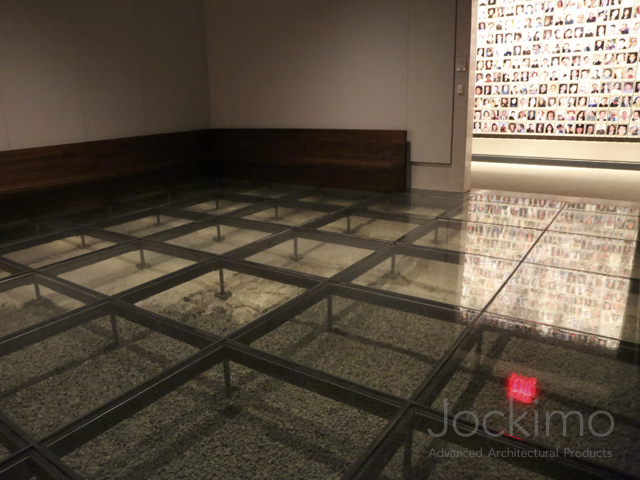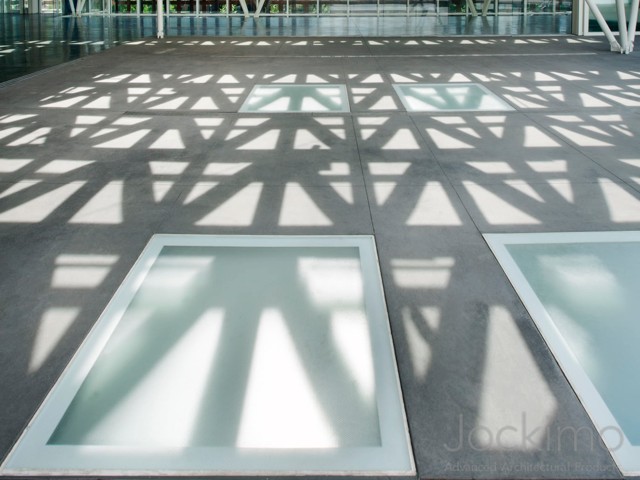Why the Lowest Bid for Your Glass Flooring Isn’t Always the Best Bid
- Details

Read This Before Jumping at the Lowest Bid for Your Glass Flooring
When you’re getting bids for your new glass flooring project, you probably have a plan. Shop around. Get a bid from at least three glass manufacturers. Choose the lowest one. If this is your strategy, here are five big reasons to rethink it.
5 Reasons the Lowest Bid on Glass Flooring Could Actually Cost You Big
-
Not Every Glass Flooring Bid Is Created Equal
When comparing your glass flooring bids, make sure you know exactly what each bid does and does not include. If you’re not comparing apples to apples, you could end up choosing a bid that seems lower but actually costs you more in the long run.
Don’t forget to consider factors like shipping. Is that itemized in the quote, or will it be an additional charge?
Will the glass be treated with an anti-scratch surface, or will this cost you more?
Always carefully read the fine print to ensure the bid is inclusive of everything you want. Otherwise, you could end up selecting a bid…and then getting an unpleasant surprise when it’s time to pay the final invoice.
-
Make Sure You Know If You’re Looking at a Quote, a Bid, or an Estimate

When you’re looking at the number your glass manufacturer gave you for your project, be very aware of the language they’re using. If you’re getting an “estimate” as opposed to a “bid,” that means two different things.
In general, use these definitions:
- Estimate: An estimate is an approximation of what the project is going to cost. This is the least precise of all three terms. An estimate usually represents a range, and the company does not need to stick to that number. It’s an educated guess that can change based on variables as the project is completed.
- Quote: A quote is more concrete and specific than an estimate. It is often a fixed dollar amount that doesn’t change unless there are specific change order requests from the client once the project is underway.
- Bid: This is the most detailed of the three terms. It will usually itemize or explain exactly what’s included in the final number. It might even include time frames or projected completion dates.
Want more detail about the distinction between these terms? Check out the difference between an estimate, quote, and bid.
A bid is not better than a quote, which is not better than an estimate. The important thing is knowing what you received. That way, you have realistic expectations when it comes time to pay for the final product.
-
Factor in the Cost of Glass Flooring Repairs or Replacement
It’s always tempting to jump at the lowest bid, but it’s important to think about the lifetime value of the glass flooring you’ll receive.
If you’re compromising on quality just to lock in a low initial price, you could quickly find yourself racking up additional and unforeseen expenses. This includes paying for repairs to your glass flooring. If the damage is extensive or unsightly enough, you might even need to pay for outright replacement.
By the time you’ve accounted for the initial expense of the floor plus the lifetime maintenance requirements, that “bargain” floor can easily end up costing you far more than simply opting for a quality product from the get-go.
-
Consider Your Liability

Glass flooring safety should always be your number one concern and priority. When properly manufactured and installed, glass flooring is perfectly safe, but if you’re choosing a rock-bottom bid, you have to ask yourself if safety is still guaranteed.
Never just take a supplier’s word at face value. Lots of companies will say whatever is necessary to secure a sale. Do your due diligence. Get confirmation of statements, or run any statements by third parties to ensure their validity.
- Don’t simply trust the product uses antislip glass. Ask for testing documentation to ensure the panels meet or exceed all relevant local, national, and international slip resistance safety standards.
- Ask for engineering reports to ensure the product meets today’s ASTM glass flooring standards.
- Ask how many pieces of glass they use per glass panel. Current ASTM codes dictate a minimum of three (for panels and stair treads).
- Ask if an engineer was consulted and used throughout the project. Ask if that engineer has specific experience and expertise in glass.
Why are these questions so important? Whether you’re adding glass flooring to a private residence or a commercial venue, there are liability issues to consider. The most obvious problem here is your liability could put you or your business in financial distress.
It’s not just money, though. There’s also uncertainty to account for. When you choose the lowest bid, you always have to wonder about the quality and safety of your floor. That takes an undesired mental toll.
Remember, liability is also not limited to the owner. The general contractor, any subcontractors, and anyone else involved in the project all carry liability as well.
-
Poor Quality Glass Floors Hurt Your Brand Reputation

If you’re installing interior glass floors into a business, you want that design choice to be a net positive for your brand. You want the drama, elegance, and sophistication of those floors to encourage people not only to spend while they’re there but to tell all their friends, to post positively on social media, and to become loyal returning patrons.
Poorly designed and manufactured glass floors can result in sloppy detail work or unsightly damage over time, especially after being subjected to the wear and tear of commercial spaces.
These unattractive aesthetics can end up hurting your brand reputation rather than helping it.
Not Sure How to Get a Glass Flooring Bid?
If you have any questions about how best to assess your glass flooring bids—or if you want a bid for a new potential project—don’t hesitate to reach out.
We’re Jockimo, a custom manufacturer of architectural glass products, and we’re always happy to answer questions, to lend our glass expertise, or to bid out a project.


